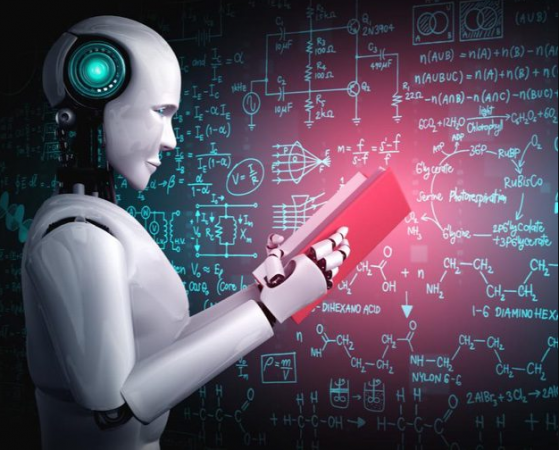
United States: The Biden administration on Tuesday unveiled a set of detailed objectives aimed at preventing negative impacts from the development of artificial intelligence systems. These purposes include rules restricting the protection and monitoring of personal data of individuals.
Notably, the Blueprint for the AI Bill of Rights does not outline specific enforcement measures; Rather, it serves as a White House call to action for the US government to protect civil and digital rights in an AI-powered world, according to officials.
Also Read: Truely Wireless BOAT Airdopes 138 Earbuds are now available for Rs 999
According to Alondra Nelson, deputy director of science and society in the White House Office of Science and Technology Policy, "This Biden-Harris administration is really saying that we need to work together in all areas, not just in government, in fact. We place equality and civil rights at the heart of the ways we create, use and control technologies." We can and should demand better performance from our technologies.
The office noted that various federal agencies have committed to deliberating on the new rules and researching the precise implications of AI technologies, adding that the white paper is an important part of the administration's agenda to hold technology companies accountable. represents progress.
The document was created after over 20 departments participated in a year-long consultation process. This includes input from tech companies such as Microsoft and Palantir, as well as civil society organizations, technologists and industry researchers.
To reduce the effects of algorithmic bias, to provide users with control over their data, and to ensure that automated systems are used securely and transparently, the White House proposes five main principles that AI should be included in the system.
Also Read: China's position as the world's leading producer of smartphones is now in jeopardy
Non-binding principles refer to academic studies, studies by government agencies, and news articles that have shown the negative effects of AI-powered devices in the real world.
These include automated systems that have discriminated against loan applicants attending historically black colleges and universities and facial recognition tools that have led to false arrests.
The white paper also said it would be beneficial for both parents and social workers to know whether child welfare organizations use algorithms to determine when to screen families for potential child abuse.
According to several people who participated in the call, OSTP staff contacted the sources cited in the article earlier this year following the publication of an AP review of algorithmic tools used in the Pennsylvania child welfare system.
They wanted to learn more. Unlike white children, a disproportionate number of black children were flagged for "compulsory" neglect checks, according to the AP's investigation of the Allegheny County Tool.
According to sources, employees of the American Civil Liberties Union and researchers from Carnegie Mellon University discussed the use of algorithms by child welfare agencies with OSTP officials in May. Nelson said protecting children from the negative effects of technology is still a concern.
Also Read: Accurist announces brand revitalization and a new watch lineup
Nelson, who also serves as deputy assistant to Vice President Joe Biden, said that if a tool or automated system is disproportionately harming a vulnerable community, it should be addressed through some specific applications and instructional suggestions. There should be levers and opportunities to do so.
With regard to the May meeting, OSTP did not comment further.
The federal government has little control over the use of AI-powered devices because many of them are built, adopted or funded at the state and local levels.
The potential impact of the Biden administration on specific state or local policies is not specifically mentioned in the white paper, but a senior administration official said the administration was looking at how to match federal grants with AI recommendations. .
The white paper does not make any new legislative recommendations and has no impact on technology companies that manufacture equipment. Nelson said organizations will continue to implement existing rules so that automated systems prevent some people from unfairly favoring others.
Additionally, according to Nelson, the Justice Department's Civil Rights Department is separately investigating algorithmic harm, bias and discrimination and did not address AI-powered technologies in the white paper.
The white paper also states that when implemented properly, AI systems have the power to bring long-lasting benefits to society, such as helping farmers grow food more efficiently or identify diseases. to help. This statement was suppressed amid calls for more oversight.
These tools have the potential to redefine every aspect of our society and improve everyone's quality of life because of the strength of American innovation. This significant advancement must not be made at the expense of democratic or civil rights, according to the document.